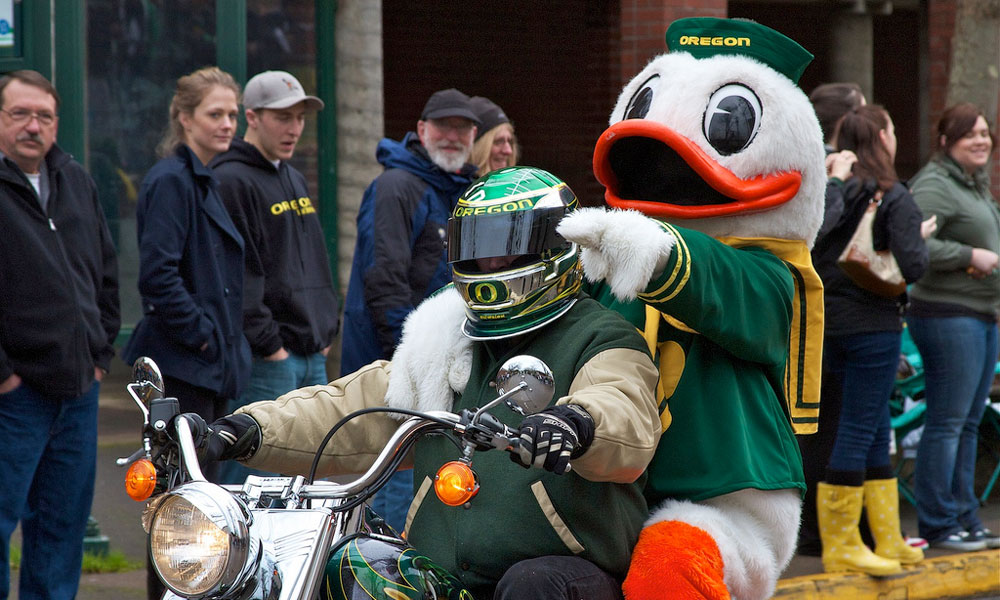
Mascots Now Have an Association to Call Their Own
Seeing a void, colleagues in the mascot business decided to launch the National Mascot Association. The group plans to develop standards for the industry and has its sights set on someday hosting a mascot convention.
There’s no denying that the NCAA Tournament is a big deal. It’s the one annual sporting event that not only drains broadband networks and worker productivity but also produces more than $2 billion in illegal bets, according to a recent estimate by the American Gaming Association.
More NCAA Tournament brackets will be filled out than there were votes cast for President Obama in the 2012 election, AGA said.
There are a lot of mascots running around, but there’s no sort of central spot where mascots can check in and come together.
The tournament isn’t just a big deal to the players, coaches, and fans, though. For the 68 teams invited to participate, there also are 68 mascots who get to tag along and do their thing courtside. If this collection of wildcats, blue devils, and bulldogs all came together, it would likely represent the largest gathering of mascots in a single location.
That’s why Jennifer Smith, founder of mascot-making company AvantGarb (the company behind the NCAA’s official basketball mascot, J.J. Jumper), decided to step in.
Earlier this year, Smith and a few of her colleagues came together to form the National Mascot Association (NMA), an organization that will represent the interest of mascot performers, makers, and vendors. Though it only currently has a logo, Facebook page, and placeholder website, Smith said work is well underway to get the organization off the ground.
“There are a lot of mascots running around, but there’s no sort of central spot where mascots can check in and come together,” she said. “We plan to be the clearinghouse for all kinds of information for mascots, be that advice on skits, mascot training, designing mascots, a place for mascot suppliers to meet with mascot makers, and a place where we can develop official guidelines around mascot safety and procedures.”
The ultimate goal for the organization, Smith said, is to hold an annual convention where the mascot industry can come together. Although that’s a ways off, she’s still happy with the positive response the organization has received.
One proponent of the work Smith is doing is Dave Raymond, founder of Raymond Entertainment Group and the Mascot Hall of Fame. Raymond, who was the first performer to suit up as the Phillie Phanatic, said having an organization like NMA would’ve been a huge help as he was starting out.
“Part of what our company does in developing and making mascots is we train performers how to do things the right way,” he said. “An organization like the mascot association that would be the clearinghouse for that information would’ve been very, very helpful. What we’re teaching now, we learned ourselves through trial and error. Back then, we were more focused on being great than we were on being safe.”
Asked if there was potential for collaboration between the Mascot Hall of Fame—which recently received funding to open a physical location in Whiting, Indiana, in 2017—and NMA, Raymond was very much open to the idea, even suggesting that the Mascot Hall of Fame could be a great venue to hold a future mascot convention.
“At the end of the day, Jennifer and I are very much aligned with making sure people who are involved in operating mascot programs understand that there are some very, very important things that you need to do on a daily basis to be great in this business,” he said. “I think the National Mascot Association—not unlike the Mascot Hall of Fame—has been a labor of love in helping to promote the value and power of mascots.”
The Oregon Duck, a mascot based on Donald Duck. (KidsLoveAnimals/Flickr)






Comments